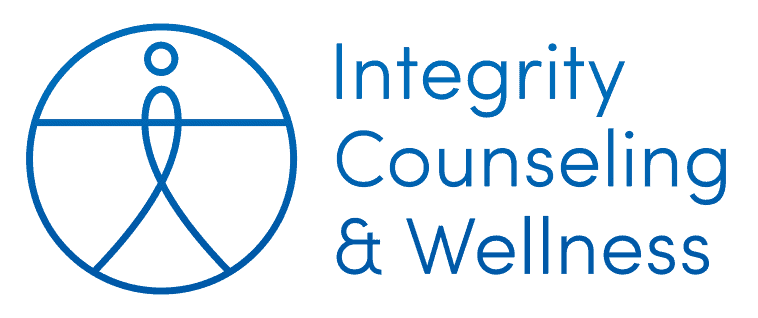It’s common to think of pregnancy as a time of hope, love, and joy. However, for many women, it can also be a time of a more serious concern: postpartum depression. Postpartum depression is very common and occurs in 1 out of 7 new moms within the first year after having their baby. It’s crucial not to ignore the signs and symptoms. Your life and the life of your baby may be at risk.
What is postpartum depression?
Understanding postpartum depression. Postpartum depression can appear in the days to months following childbirth and can be triggered by many factors. In many cases, patients may ignore possible symptoms and blame hormone changes. However, postpartum depression can be dangerous for both the mother and child and is not to be confused with “baby blues,” a period of mood swings lasting only up to two weeks.
What are the symptoms of postpartum depression?
There are several symptoms of postpartum depression, and one mother’s experience can vary greatly from another’s. It’s important to speak with your doctor or mental health clinician regarding your experience, so that a professional assessment can be done. Please also keep in mind that postpartum depression can begin up to twelve months following childbirth.
- Common signs and symptoms include:
○ Depression lasting more than two weeks
○ Feeling unmotivated or disinterested in caring for yourself or baby, or in things you used to enjoy
○ Excessive crying spells
○ Lashing out or intense irritability and anger
○ Trouble sleeping or sleeping too much
○ Changes in appetite (overeating or loss of appetite)
○ Trouble bonding with your baby
○ Feelings of hopelessness and despair
○ Believing that you are not a good mother
○ A sense of worthlessness or shame
○ Difficulty thinking clearly or making decisions
○ Overwhelming anxiety and panic
○ Recurrent thoughts of harming yourself or your baby
What triggers postpartum depression?
Although there is no exact consensus on why postpartum depression starts, experts note that there are triggers or risk factors in the onset:
○ Hormonal changes: Some medical experts believe that hormone and body changes during pregnancy can trigger depression, especially in moms that have a personal history or family history of depression.
○ Relationship issues or a lack of social support is also a risk factor, because the mother may feel overwhelmed in her new role. She may also worry about how the child will affect the relationship with her partner after the baby is born.
○ Complications during pregnancy can also trigger depression. If the mother is on bed rest or worried about caring for a special needs child, it’s easier for depression to start. The joy of having a new little one can be replaced with sadness, worry, and fear.
○ Financial strain is also a risk factor. If the new mother is concerned about financial difficulties of having an addition to the family, this can also increase feelings of hopelessness and anxiety related to meeting basic needs.
How long does postpartum depression last?
Again, “baby blues” are a shorter and less turbulent period of mood swings that follow pregnancy and can last only up to two weeks. And, although postpartum depression generally develops within four to six weeks after having your baby, it can start up to twelve months after childbirth. That being said, up to 50% of women still experience postpartum symptoms up to one year following the birth of their child, and with no treatment up to 30% may still experience symptoms three years postpartum. These statistics are a strong indicator of why reaching out to your medical provider or licensed mental health professional is critical for postpartum depression treatment.
What are the risks with postpartum depression?
There are many risks that come along with postpartum depression for both the mother and the child.
- Suicidal behavior is a major risk for those struggling with postpartum depression. A woman who suffers from postpartum depression is more likely to try to kill herself or her child.
- Although some mothers are able to complete self-care during depression, others struggle to eat properly or maintain healthy hygiene and sleep when feeling depressed.
- In addition to poor self-care, there is a great risk for not caring for your baby when struggling with postpartum depression. Many mothers may find it hard to soothe, feed, bathe, and perform other care activities for their child when they are dealing with overwhelming feelings associated with depression.
- It’s important to recognize that a woman who has postpartum depression may not be making the best decisions for her baby, as decision making and thinking clearly can be difficult for those suffering from postpartum depression.
- There can be long term effects on your child, such as delayed cognitive and speech development, attachment issues, behavior concerns, and the child’s future development of depression.
How do you get help for postpartum depression?
Treatment options for postpartum depression may vary, and it’s important to discuss them with your doctor or mental health provider to work out the best plan for you.
○ Women with postpartum depression can find help through therapy, such as cognitive behavioral therapy- which has proven to be a successful treatment option for postpartum depression.
○ Both individual and group therapy sessions can be beneficial. Discuss these options with your provider and work out a schedule that fits your needs.
○ You may also benefit from some medications, but there are restrictions because drugs can affect the baby if you are breastfeeding. Your prescribing professional will be able to answer questions about this route to find what works best for you.
○ Support groups have helped some women with postpartum depression by providing a space where you can share your experience with others who are in a similar situation.
○ In addition, reducing stress and eliminating issues that are causing anxiety can help. Finding much needed social support can be helpful, possibly through new moms’ groups or other groups geared toward increasing social support.
○ Adjustments to diets, exercise, and lifestyles may also provide some assistance with relieving some of the symptoms associated with postpartum depression.
○ The most important step is to seek help and not ignore the symptoms. Doctors and mental health therapists can determine the best treatment plan on an individual level and will assist you in reducing your suffering and working toward better functioning.
Postpartum depression is a real issue and should not be ignored.
No matter what your depression is telling you, it does not mean you’re weak, inadequate, or not meant to be a mom. If you have the signs of postpartum depression, seek treatment right away. If you know someone else who shows signs, give them support and encourage them to seek treatment. No one should have to suffer alone and go through this without support. Get an assessment for postpartum depression today. You could save a life – or two.

